Areas of Practice
Estate Planning
Planning for the future extends beyond just financial security. It's about ensuring your loved ones are protected and your wishes respected, even when you're no longer there.
We understand the complexities of navigating legal matters, especially during sensitive times. We will work closely with you to craft a personalized estate plan, tailored to your unique assets, family dynamics, and long-term goals. We are here to help you protect your loved ones, minimize taxes, avoid probate delays, and ensure your wishes are carried out seamlessly.
Estate plans are typically will-based or trust-based and include several ancillary documents, such as financial powers of attorney, medical powers of attorney, and directives to physicians. Plans may also may include additional documents, discussed in more detail below.
Wills
A last will and testament, also referred to simply as a will, is a legal document that outlines the wishes of a person, called the Testator, regarding the distribution of his or her property and assets after his or her death. In addition to naming beneficiaries who are to inherit specific assets, a will may also and specify other important instructions, such as disposition of remains.
Without a valid will, one's estate may be distributed pursuant to the state laws of intestacy, potentially leading to outcomes that do not align with the individual's intentions.
One should consult with legal professionals when preparing a will to ensure that it is validly executed and reflects the individual's wishes. Regularly reviewing and updating the will is also important, especially when major life events occur, such as marriage, divorce, or the birth or adoption of children or grandchildren.
When the Testator passes away, the will must be administered through the court-overseen probate process in the county in which the Testator was domiciled at the time of death.
Revocable Living Trusts
A revocable living trust is an estate planning tool that allows an individual, often referred to as Grantor, increased disability protection during life and administrative efficiency for the Grantor’s loved ones when he or she passes away.
A trust allows the Grantor to transfer ownership of their assets into a trust during their lifetime and maintain use and control of those assets. The Grantor appoints a successor Trustee to manage the assets for the Grantor if the Grantor becomes incapacitated. If the assets are properly funded into the trust, the Trustee can easily access the Grantor’s assets to pay the Grantor’s expenses, and a costly guardianship proceeding can be avoided.
The trust also provides for the distribution of the Grantor’s assets upon his or her death. A key benefit of the revocable living trust is that it allows for probate avoidance, meaning the distribution of the Grantor’s estate does not have to go through the court-overseen probate process. Instead, the administration is done privately and can be much more streamlined than probate.
Overall, a revocable living trust can be an essential component of a comprehensive estate plan, offering flexibility, control, and privacy to the grantor and his or her beneficiaries.
Irrevocable Trusts
Irrevocable trusts allow individuals to transfer assets out of their own name and into the trust for the benefit of chosen beneficiaries. Once established, the terms of an irrevocable trust generally cannot be modified or revoked by the individual who created it.
Irrevocable trusts are typically used for tax planning, asset protection, or both. Assets transferred to the irrevocable trust can be removed from the grantor's taxable estate, providing potential estate tax benefits. Irrevocable trusts can also offer asset protection from creditors.
It is important for individuals considering an irrevocable trust to understand the permanent nature of this type of trust, and to ensure that it is the right tool to accomplish the individual’s estate planning goals.
Business
Bily Harlow is passionate about helping small businesses succeed. We strive to resolve disputes economically and creatively. We accept transactional business matters on a case-by-case basis. We also integrate business considerations into our estate plans - the owners of small businesses need to consider the ramifications of their incapacity or death on their business. Bily Harlow sets up businesses, and their owners, for success.
Real Estate
A firm grasp of the real estate market and the laws that govern property in Texas is essential for making informed decisions regarding your property. Whether you are planning your estate, purchasing a family home, or selling an investment property, Bily Harlow can help facilitate the process smoothly.

